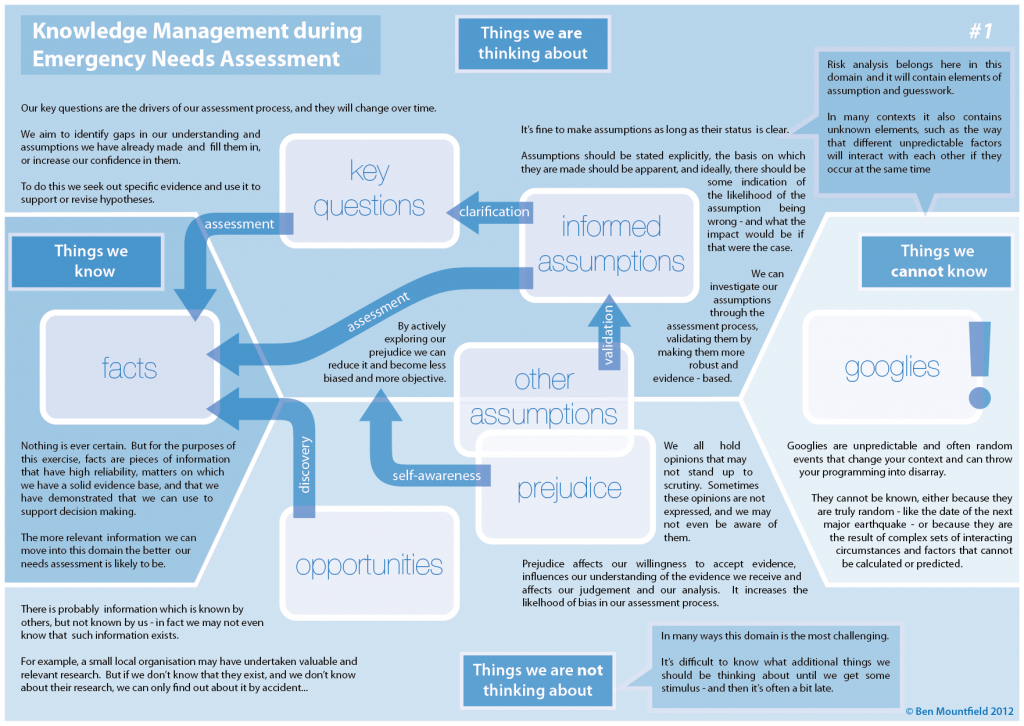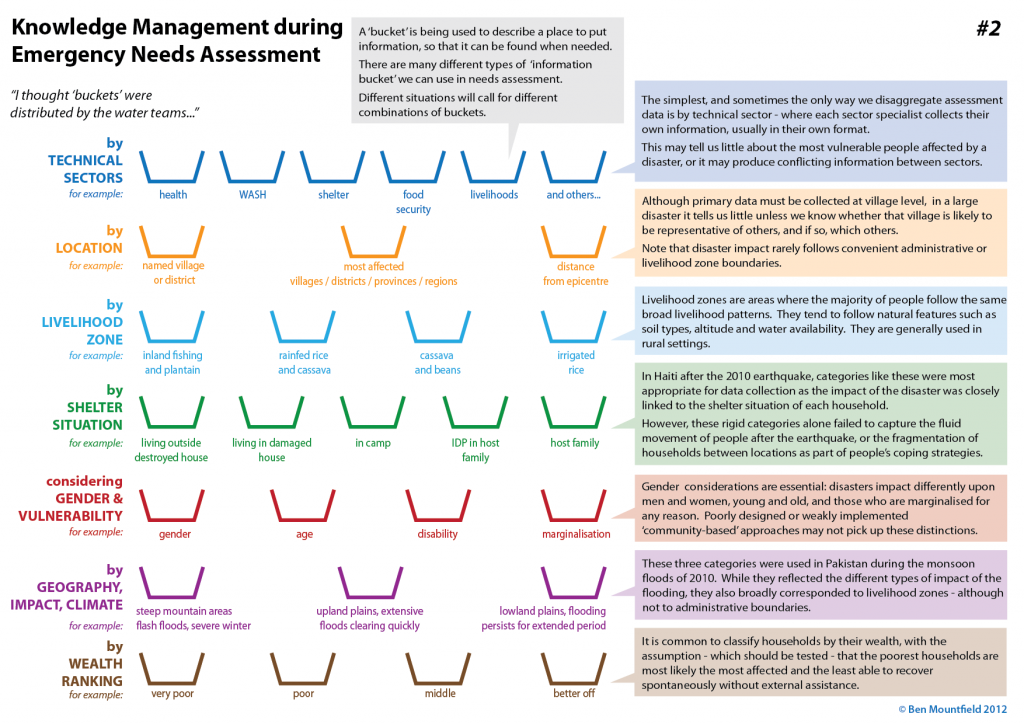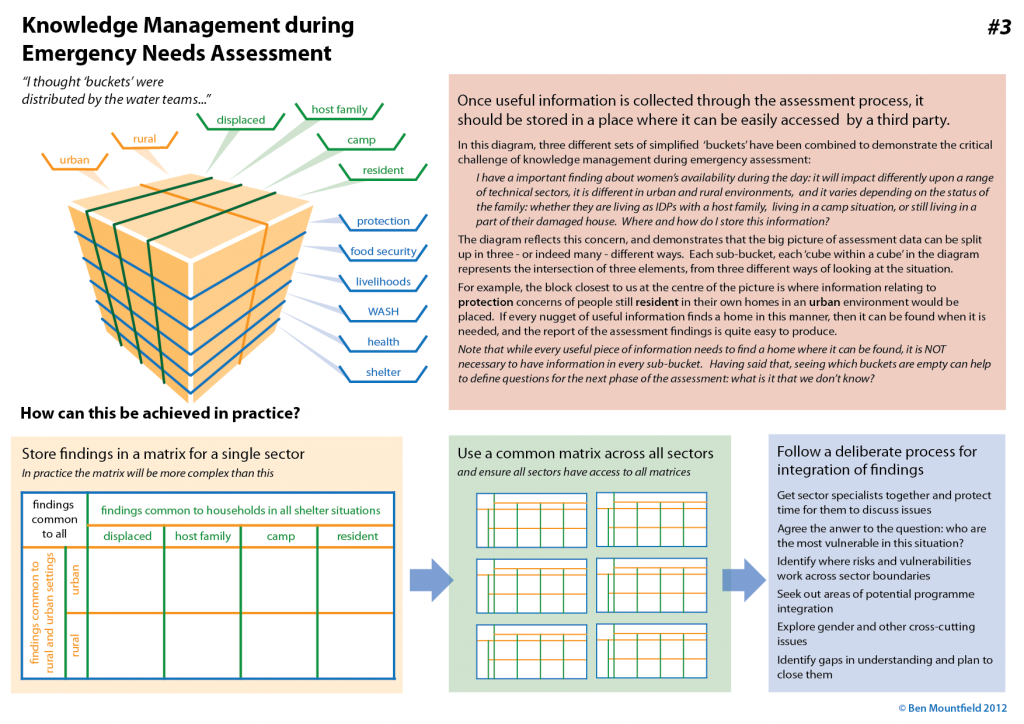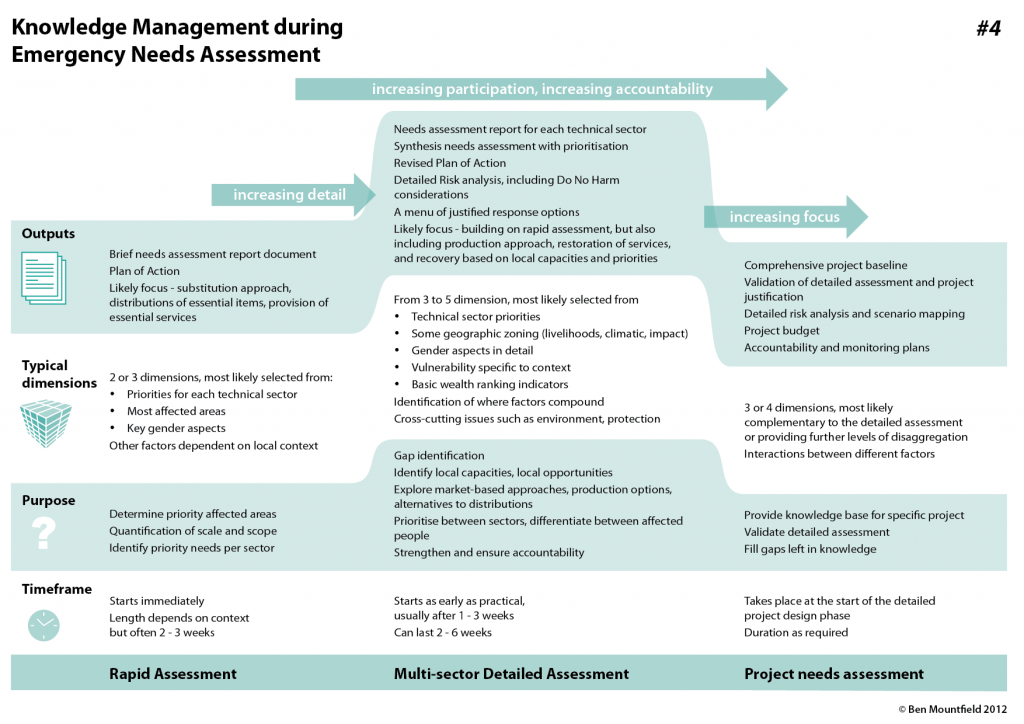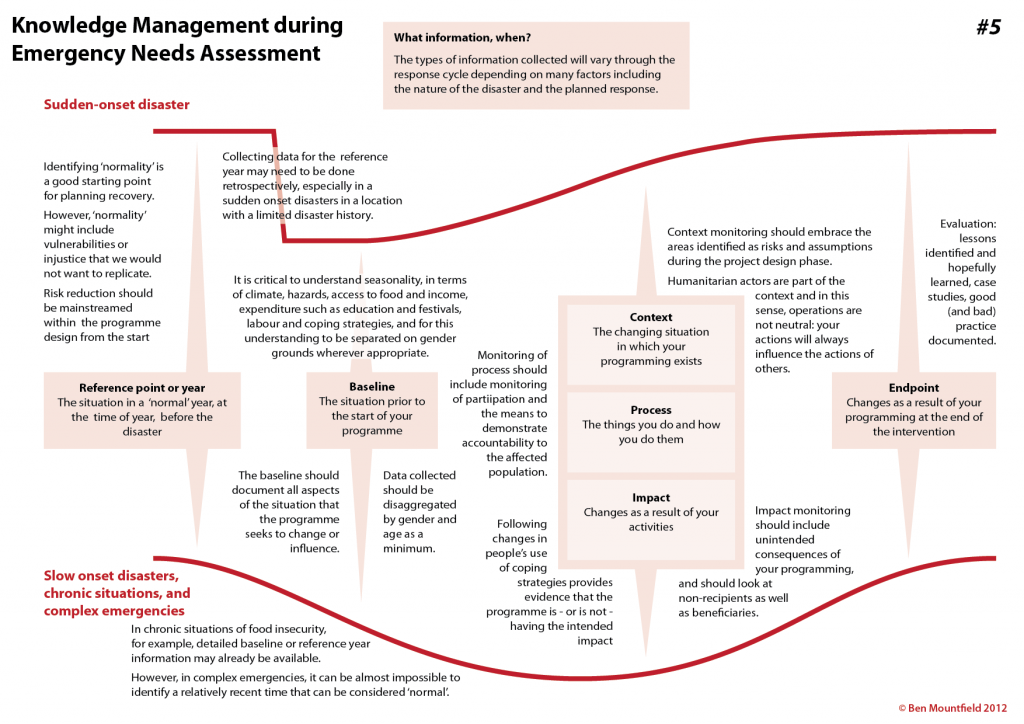Deployment
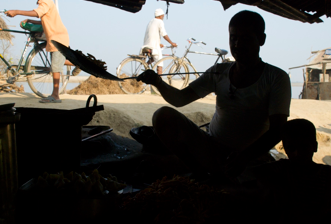
Field deployments are real
Deployments are real, in a way that evaluations and training courses are not.
They are not very common, especially at a senior level: humanitarian agencies understandably try to maintain in-house surge capacity to meet urgent needs. But these are the most interesting, the most challenging – and in many ways the most important.
They are also the place where the wide range of experiences provided by my consultancy portfolio can really be of benefit. As a consultant, I change environment much faster than I did as a manager – I experience diverse operational environments and I work inside different institutions. I learn. Lots.
In addition to sudden onset emergency deployments, I have included slow-onset programme design and early recovery needs assessment and analysis roles in the list below.
Deployment and analytical tools
Large and complex emergencies require a fairly sophisticated approach to information management. It’s a huge waste of effort to deploy an assessment team to a remote village, if the only output is a detailed assessment of a single village. We need to understand the context, identify gaps in our knowledge, and visit that village because it is likely representative of others, and helps to fill those gaps. We can’t go everywhere, and we must extrapolate – at least in the early stages – or we cannot plan effectively. Time spent on secondary data analysis and the construction of an appropriate framework is time that pays huge dividends.
The following infographics were developed to try to explain my thinking processes when exposed to a new environment, with uncertain quality of information, big gaps in our knowledge, and an urgent need to produce data that can be used to influence programme design. Click on any image for a full size version.
deployment consultancy contracts:
Nepal Earthquake: Recovery Advisor
2015 – Nepal Earthquake Recovery Advisor / Coordinator – for IFRC
Role: Provide technical advice and coordination support to Nepal Red Cross, develop the recovery plan and gain buy in from RC Movement partners. Facilitate Movement Wide partnership meeting.
Detailed workplan for integrated urban resilience programme
2013 – Sole Consultant – for American Red Cross
Key outputs: integrated programme framework, integrated implementation plan, geographical methodology.
Programme design: integrated rural DRR programme, North of Haiti
2012 – Team Leader and facilitator; proposal author – for American Red Cross, Haiti.
Main tasks: included detailed multi-sector options analysis and participatory workshop with HQ and field stakeholders to finalise proposal.
Innovation: Detailed technical approach to response option analysis
Programme design: Urban DRR, Managua
2012 – Sole consultant – for ADRA
Task: Develop integrated DRR proposal in Managua District 3 for submission to OFDA
Relief assessment, feeding into the Federation’s revised strategic plan for recovery
2011 – Team Leader for IFRC Haiti
Key Question: what is the correct balance of relief and recovery programming at this stage?
Deployment: Recovery Coordinator, Pakistan monsoon floods
2010 – Senior field management role – for IFRC
Role: deployed into the emergency phase to design and oversee the recovery assessment process, develop the Recovery Framework, and revise the Plan of Action.
Innovation: formalising the elements of secondary data analysis, synthesis of findings and reflection within the assessment process.
Deployment: Recovery Assessment, Haiti Earthquake
2010 – Sector team lead – for IFRC Haiti
Objective: context analysis, assess outstanding needs, response option analysis
CBP project design: urban and rural voucher projects
2009 – Sole consultant with local team – for IFRC, Zimbabwe and Danish RC
Key tasks: design an urban and a rural voucher scheme to address food insecurity issues, including a comprehensive monitoring framework, and develop the supporting ECHO proposal.
Innovation: the rural milling voucher at a time when there was very little currency in circulation
Early Recovery Adviser, Suriname Floods
2009 – Sole consultant – for UNDP Suriname
Objective: support the GoS in a multi-stakeholder process to reflect on the floods of 2008, develop a capacity analysis, hazard mapping, action plan, and strategic framework
